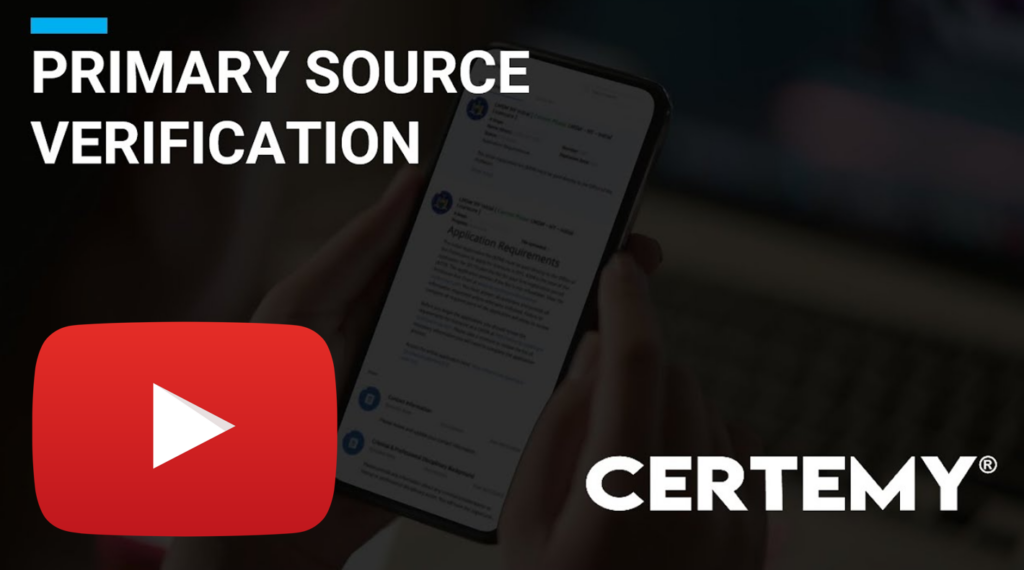
License Verification Tool | Certified Clinical Research Coordinator
Clinical research coordinators play a crucial role in the development and launch of new medical treatments and therapies. To lead a clinical research team efficiently, clinical research coordinators must ensure that they have current, valid license credentials. The process of tracking and verifying licenses can, however, pose a challenge for human resource teams. A reliable solution is automated primary source Verification, which helps ease the burden of license tracking and maintains a compliant workforce.
Verifying credentials is a critical element of the human resource process. Regulatory bodies have established licensing requirements and standards of practice for clinical research coordinators. These requirements and standards are in place to help protect patients and the research team. Ensuring that credentials are up-to-date and valid is also necessary to ensure that the research team members possess the knowledge and skills required to conduct safe, reliable clinical research studies.Using an automated primary source verification system is the best way to track and verify licenses. Utilizing such a system provides the most accurate results and also helps to reduce potential Compliance risks. Automated primary source verification ensures that all license credentials are checked against the appropriate regulatory authorities in a timely manner, giving HR teams peace of mind. In addition, automated primary source verification provides the added benefit of allowing HR teams to quickly search for and track license credentials across multiple jurisdictions.Automated primary source verification also helps HR teams stay ahead of changing regulations. As regulations related to clinical research coordinator licensure can vary from state to state, an automated primary source verification system can help ensure that each credential is being tracked according to the applicable rules. In addition, the automated system can be configured to provide alerts when license verification is due for a particular research team member. Having this advanced warning helps to ensure that all clinical research coordinator license credentials are kept up-to-date at all times.Finally, an automated primary source verification system can help HR teams to save time and effort. Automated processes are significantly faster than manual processes and can provide real-time updates regarding the status of an individual’s license credentials. This is especially useful for research teams operating in multiple jurisdictions, as it can provide insight into the compliance of a large number of research team members at the same time.Certemy offers an automated primary source verification system built for speed and accuracy. Our solution is trusted by some of the largest employers in the United States and helps streamline license tracking and management, as well as provide improved visibility and control of the workforce compliance program. Certemys pre-built workflows and automated license application processes also make license tracking and verification faster and easier for HR teams.Using an automated primary source verification system is a surefire way to stay compliant and ensure that an organizations clinical research coordinator licensing is properly tracked and verified. Automated primary source verification provides time and cost savings, improved staff utilization, and importantly, helps protect patient safety by confirming that research team members possess active, appropriate licenses.Topics:

